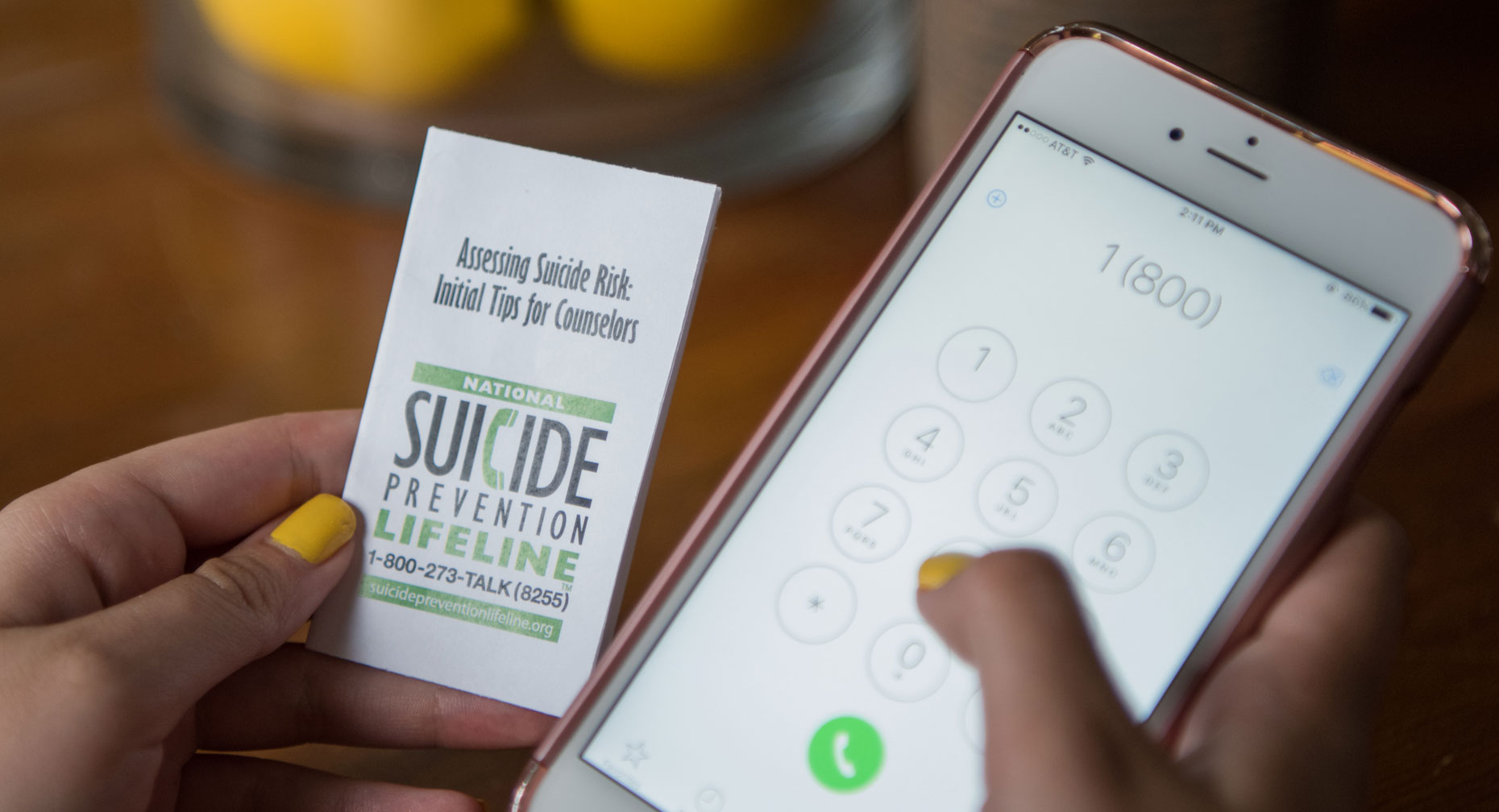Yes, There’s Help for Depression

Answer a few questions and we'll provide you with a list of primary care providers that best fit your needs.
Depression affects over 16 million American adults each year, according to the National Institute of Mental Health. Please know that if you or someone in your life is suffering with depression, resources are available to help you in your struggle.
Samaritan Behavioral Health![]() — with locations in Ohio’s Montgomery, Miami and Preble counties — offers Samaritan CrisisCare to children, adolescents and adults. Resources for CrisisCare include:
— with locations in Ohio’s Montgomery, Miami and Preble counties — offers Samaritan CrisisCare to children, adolescents and adults. Resources for CrisisCare include:
- Hot Line (telephone crisis intervention and suicide prevention)
- Emergency walk-in services
- Mobile crisis intervention
- Crisis counseling
- Pre-hospitalization screening
- Warm Line (non-crisis, supportive listening)
- Screening and triage: evaluation of crisis needs with follow-up recommendations
- Emergency psychiatric care
For an appointment for mental health services that include individual or family therapy or substance abuse services, call 937-734-4310 or 937-734-4311. In an emergency, call CrisisCare at 937-224-4646. In Preble County, call 866-532-3097.
In addition, many local, regional and national organizations offer abundant help in the form of articles, information, programs, support groups and other support. Visit their websites to see how they can help you. Listed below are just some of what the organization offers.
Please know that if you or someone in your life is suffering with depression, resources are available to help you in your struggle.
Regional Resources

- The Dayton chapter of Depression & Bipolar Support Alliance
 offers the DBSA Wellness Tracker, a free, innovative, and user-friendly online tool so you can keep track of your emotional, mental and physical health. The website also has tips on understanding medications, treatment options and how to find a support group near you.
offers the DBSA Wellness Tracker, a free, innovative, and user-friendly online tool so you can keep track of your emotional, mental and physical health. The website also has tips on understanding medications, treatment options and how to find a support group near you. - Mental Health America of Northern Kentucky & Southwest Ohio
 has information on National Institute of Health clinical trials. You’ll also find info on relationships: tips, articles, activities, defining boundaries, communication and making positive changes in your life.
has information on National Institute of Health clinical trials. You’ll also find info on relationships: tips, articles, activities, defining boundaries, communication and making positive changes in your life. - Montgomery County Alcohol, Drug and Mental Health Services
 offers online screening (anonymous and confidential) to determine if you or someone you care about should connect with a mental health professional. Immediately following the brief questionnaire, you’ll see results, recommendations and key resources.
offers online screening (anonymous and confidential) to determine if you or someone you care about should connect with a mental health professional. Immediately following the brief questionnaire, you’ll see results, recommendations and key resources. - Ohio Dept. of Mental Health and Addiction Services
 gives information on maternal depression as well as mental health in older adults. Depression and anxiety are frequently unreported and untreated in pregnant women and new moms, as well as people age 65 and older. Also, the site lists mental health providers by county.
gives information on maternal depression as well as mental health in older adults. Depression and anxiety are frequently unreported and untreated in pregnant women and new moms, as well as people age 65 and older. Also, the site lists mental health providers by county. - Talbert House
 , with locations in Ohio’s Montgomery, Butler, Clinton, Hamilton and Warren counties, has programs and initiatives designed to help individuals and families coping with mental health and other issues.
, with locations in Ohio’s Montgomery, Butler, Clinton, Hamilton and Warren counties, has programs and initiatives designed to help individuals and families coping with mental health and other issues.
National Resources
- The American Psychiatric Association
 describes the warning signs of mental illness and includes info about depression in schools and the workplace.
describes the warning signs of mental illness and includes info about depression in schools and the workplace. - The American Psychological Association
 can tell you how to find a psychologist. Plus, the site offers the Psychology Help Center, an online consumer resource featuring information related to psychological issues.
can tell you how to find a psychologist. Plus, the site offers the Psychology Help Center, an online consumer resource featuring information related to psychological issues. - The Depression & Bipolar Support Alliance
 offers resources such as podcasts, webinars and more than three dozen educational brochures (can be downloaded) on topics from treatment strategies to combating negative self-talk.
offers resources such as podcasts, webinars and more than three dozen educational brochures (can be downloaded) on topics from treatment strategies to combating negative self-talk. - Mental Health America
 offers online screening tools for depression, anxiety, bipolar, post-traumatic stress disorder and other issues. A pediatric symptom checklist helps parents to understand more about the level of depression in their child.
offers online screening tools for depression, anxiety, bipolar, post-traumatic stress disorder and other issues. A pediatric symptom checklist helps parents to understand more about the level of depression in their child. - NAMI, the National Alliance on Mental Illness
 , gives advice on specific subjects such as calling 911 and talking with police, finding a missing loved one, and understanding how stress affects a caregiver.
, gives advice on specific subjects such as calling 911 and talking with police, finding a missing loved one, and understanding how stress affects a caregiver. - NIMH, the National Institute of Mental Health
 , explains the forms of depression, risk factors, treatment and therapies.
, explains the forms of depression, risk factors, treatment and therapies. - National Suicide Prevention Hotline
 — 1-800-273-8255 — is a national network of local crisis centers that provides free and confidential emotional support to people in suicidal crisis or emotional distress 24 hours a day, 7 days a week.
— 1-800-273-8255 — is a national network of local crisis centers that provides free and confidential emotional support to people in suicidal crisis or emotional distress 24 hours a day, 7 days a week.
Answer a few questions and we'll provide you with a list of primary care providers that best fit your needs.
Source: Samaritan Behavioral Health; Depression & Bipolar Support Alliance; Mental Health America of Northern Kentucky & Southwest Ohio; Montgomery Co. Alcohol, Drug & Mental Health Services; Ohio Dept. of Mental Health and Addiction Services;



.tmb-card-head.webp?sfvrsn=680c0961_9)
